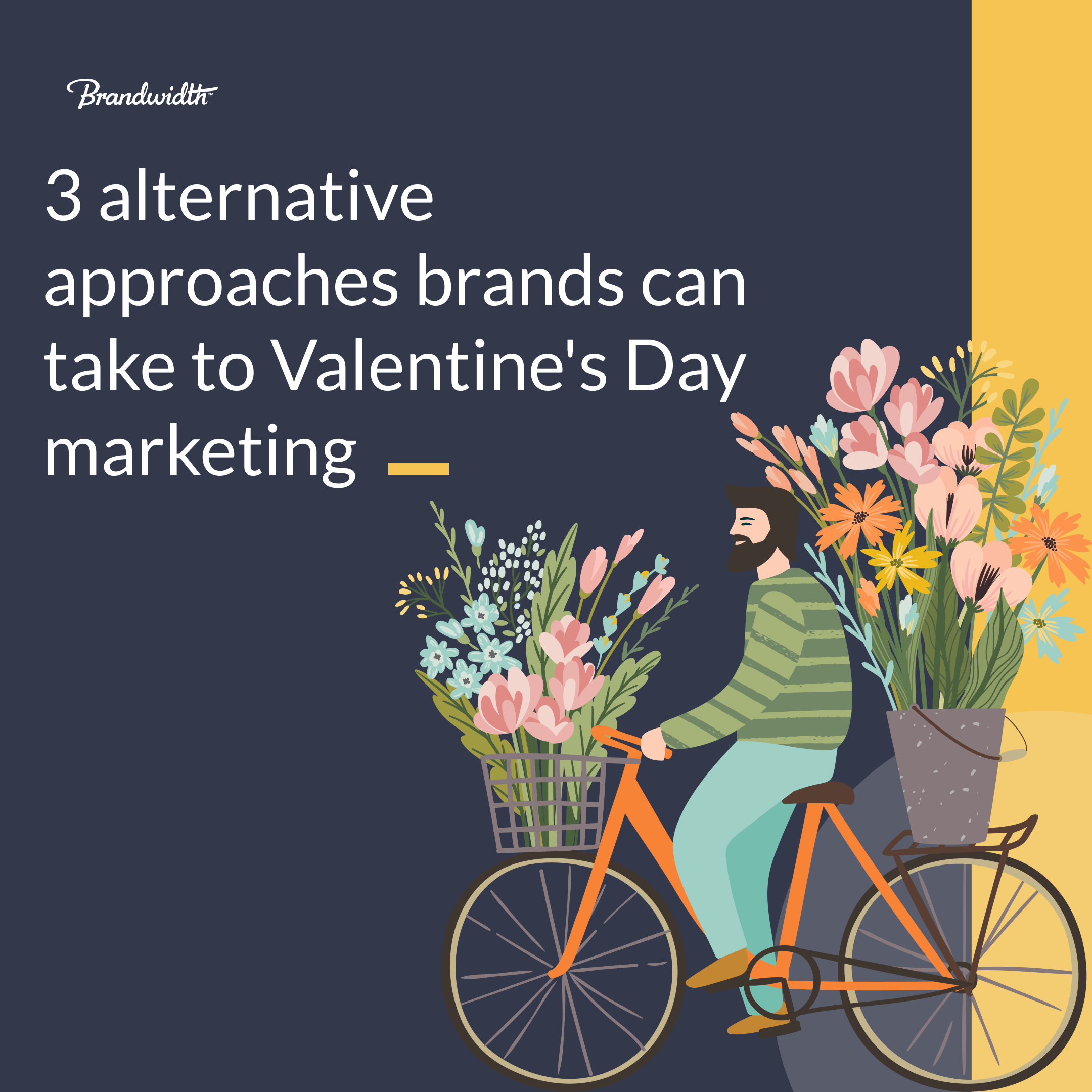





Although Valentine’s Day can trace its origins back to the 8th century, it wasn’t until the 18th-century that it became commonplace for lovebirds to express their devotion by gifting flowers, confectionary and greetings cards. Since then, Valentine’s Day has become increasingly commercialised, with US Valentine’s spending estimated to reach 26 billion dollars this year.
It makes sense that brands want to capitalise on this opportunity by adding Valentine’s into their content strategy, but if their product or campaign isn’t relevant to the celebration, promotional efforts can seem insincere, and risk doing more damage than good. For example, a 2018 Valentine’s Day campaign from the Department of Work and Pensions (DWP) fell flat, after they urged people to declare their “true” living arrangements to avoid benefit fraud. The campaign was declared “mean-spirited” and “threatening” on social media and there were many calls for the DWP to delete their tweets, with users claiming they’d missed the whole point of Valentine’s Day.
Smart brands realise that being genuine is more important than being culturally relevant, but for those looking to do both, traditional Valentine’s marketing isn’t their only option. Looking to other holidays that focus on friendship and singledom is one approach, or flipping the whole thing on its head and celebrating anti-Valentine’s Day has worked for others.
Galentine’s Day
You may be familiar with Valentine’s Day, but how about Galentine’s Day? First featured on TV sitcom ‘Parks and Recreation’ back in 2010, Galentine’s Day has gained traction as a celebration of female friendship, with many seeing it as a refreshing alternative to traditional Valentine’s Day, replacing the romantic focus with a celebration of platonic love. Celebrated on February 13th, Galentine’s Day grows in popularity each year, gaining nearly the same amount of mentions on social media as Valentine’s, with 48.05% of the share of voice in 2019.
Realising there’s just as much to be gained from celebrating friendship as romance, a few brands have branched out into Galentine’s campaigns over the last few years. For anyone wanting to follow in their footsteps and celebrate platonic love, it’s important to remember that it’s all about a connection between people. The instinct could be to launch a limited-edition product, but consider a campaign focused on events that bring friends together and stays true to the Galentine’s message. Take inspiration from workout studio PoPfit, who blasted some spice girls for their Galentine’s Day-themed workout class, and Everyman Cinema, who screened cult classics Legally Blonde and Mean Girls.
Singles’ Day
To take an altogether different route, some brands may choose not to celebrate Valentine’s or Galentine’s at all, and instead champion singledom.
Singles’ Day, celebrated each year on 11/11, was first started in 2019 by Chinese ecommerce platform, Alibaba, as an online shopping extravaganza for those who aren’t fans of Valentine’s Day. While it has more prominence in China, many global brands, especially those looking to attract Chinese consumer demand, are hopping on the bandwagon. Another benefit is the distance between Valentine’s Day and Singles’ Day, as brands don’t have to compete with the multitude of campaigns airing in the run-up to February 14th.
However, brands that want to avoid Valentine’s Day due to the accusations that it’s become overly commercialised, may want to consider a different approach, as there’s no denying that Singles’ Day is all about spending money. In 2021, luxury fashion brand Burberry released a limited NFT collection for the event. Totalling only 1000 units, the NFT of a deer wearing a scarf would also entitle the buyer to a physical version of the scarf, all for the price of RMB2900 (£360). The connection to celebrating the single life is hard to find.
Anti-valentine’s
Whereas Singles’ Day is an opportunity for those without romantic partners to celebrate their singledom, there’s also been a growth in anti-Valentine’s sentiments during the runup to the heart-shaped holiday. Not aiming to celebrate the single, but instead appealing to couples who are jaded by all things Valentine’s, Etsy card shop World of Twigg has seen a huge rise in sales of “I suppose you’ll do” cards, and others in her anti-Valentine’s collection.
If your brand has, for a long-time, focused marketing activity around Valentine’s Day, suddenly flipping things on its head and going down the anti-Valentine’s route could seem disingenuous, which is part of the reason people are feeling jaded by Valentine’s Day marketing. But if your brand has been a longtime champion of diversity and otherness, this could be the right approach for you. The Royal Vauxhall Tavern’s anti-Valentine’s Day ball crowns the person who has been single the longest and forces the longest standing couple to build IKEA furniture together in the corner of the dancefloor. A humorous approach? Yes, but most importantly, it’s true to their brand.
Whether your brand chooses to focus marketing efforts on Valentine’s, or any of the alternatives explored above, make sure your campaign stays relevant to the core values of your brand, or your customers might be leaving you broken hearted this year.



Our dedicated team dives deep, delivering relentless value and aligning digital solutions with your goals in a way that guarantees success
Learn more